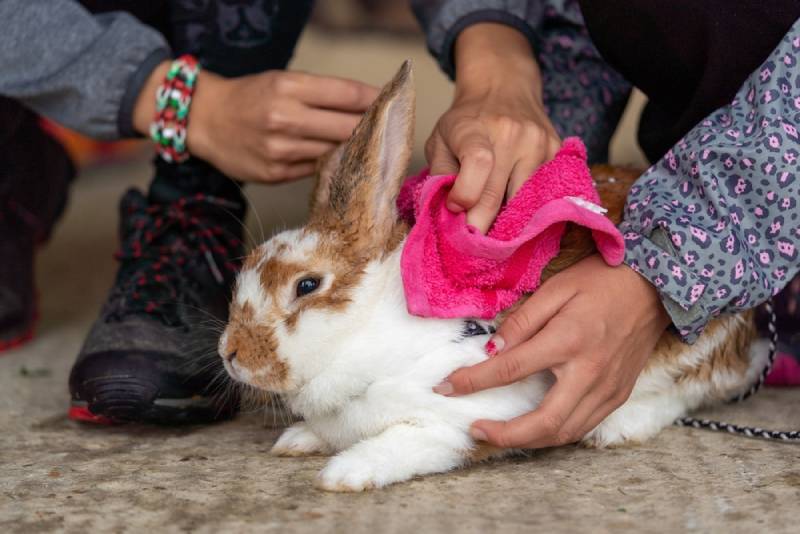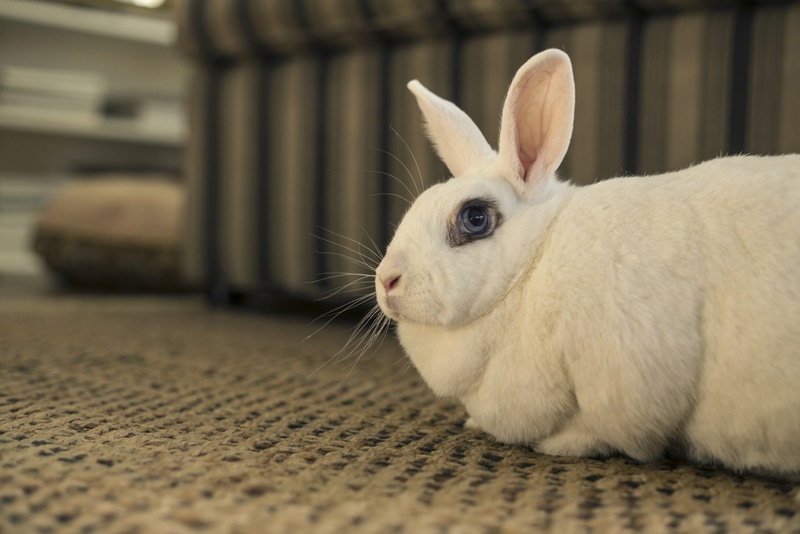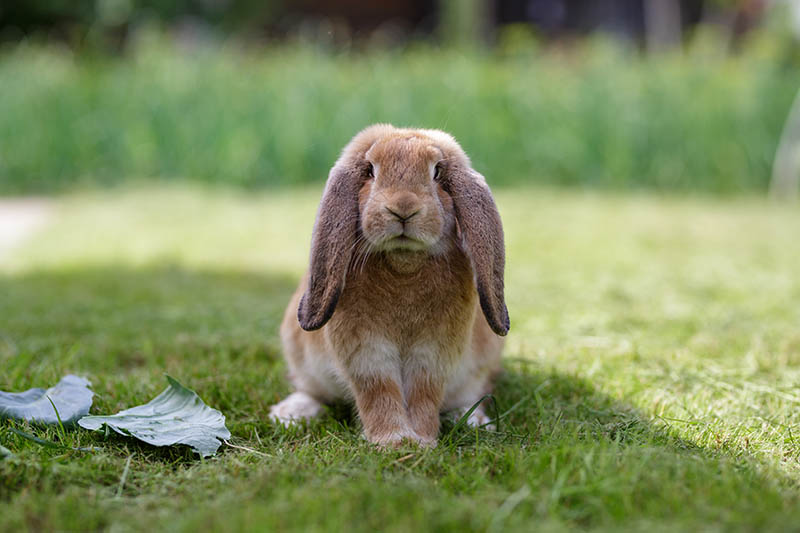Do Pet Rabbits Bite? What to Watch Out For
Updated on
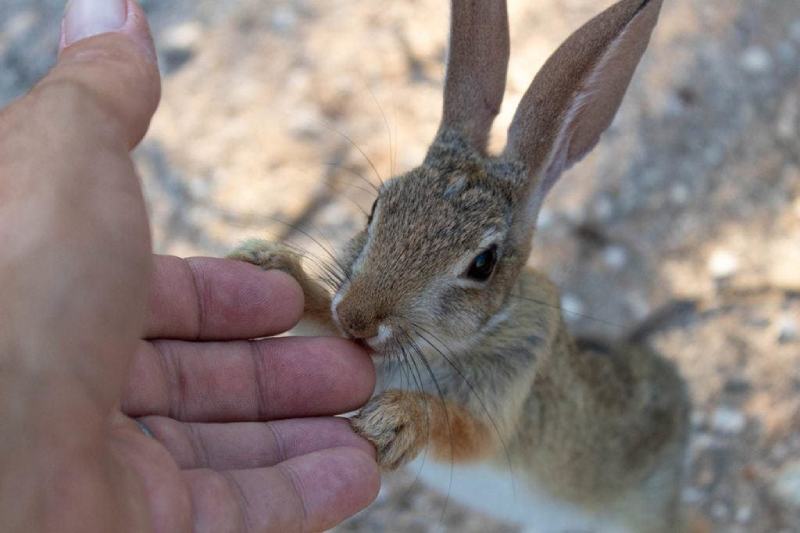
Many pets, like dogs and kittens, are nippy, particularly when they’re young. It’s normal behavior for a young animal. Rabbits also display this behavior when startled or wanting something, whether a treat or alone time. Of course, there are those menacing-looking teeth. Add the rabbit’s low threshold for stress, and you have the perfect storm.1
When it comes to biting, rabbits have the gumption to do it. Yes, these animals can bite when threatened or provoked. If it has happened to you, you know it hurts. We’ll discuss the unique nature of their teeth and how not to be on the receiving end of them.
Rabbit Teeth
Rabbits have 28 teeth, including two pairs of long incisors on the top and bottom jaws. They also have a second smaller pair called peg teeth on the upper jaw behind the big ones. They differ from rodents, which only have one pair of these elongated incisors. The purpose of these teeth for rabbits is to cut through vegetation. They are exclusively herbivores that feed on plant materials.
A rabbit starts life with a set of baby teeth, which it loses when it reaches a few months old. The permanent teeth that replace them grow continuously throughout the animal’s lifetime. That’s why it’s imperative to provide them with fiber and toys to keep them in check. Unlike humans, bunnies only have their sharp incisors, premolars, and molars because of their limited diet.
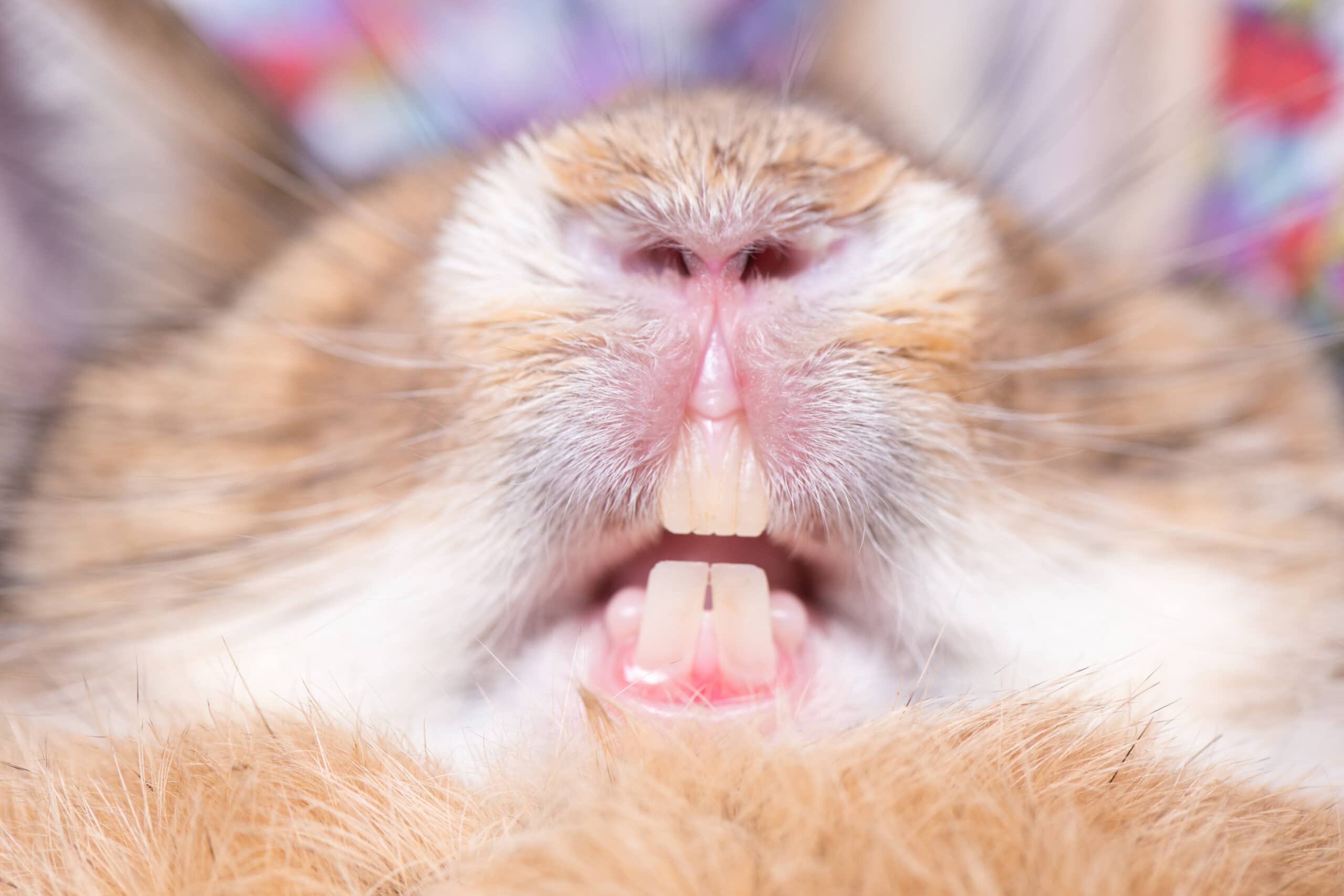
Reasons Pet Rabbits Bite
Understanding a few things about rabbit behavior is essential. First, these animals are prey. Consequently, they react as if anything new in their world is a potential threat. It makes evolutionary sense.
A bunny might bite if it’s stressed or sick. Think of how you feel when you’re ill. You probably don’t feel very social. It’s the same with your pet. Rabbits can also get annoyed or even angry if another lagomorph trespasses on their turf. These animals are territorial at times. Sometimes a bunny may try to bite if it doesn’t want to be handled.
Look at it from their perspective. Being held means you can’t run away and escape if a predator grabs you. After all, their best defense is to run away. A rabbit not used to handling may balk if you try to get it. Bunnies need time to get to know their owners and trust them. However, treats—in moderation—are an excellent icebreaker.
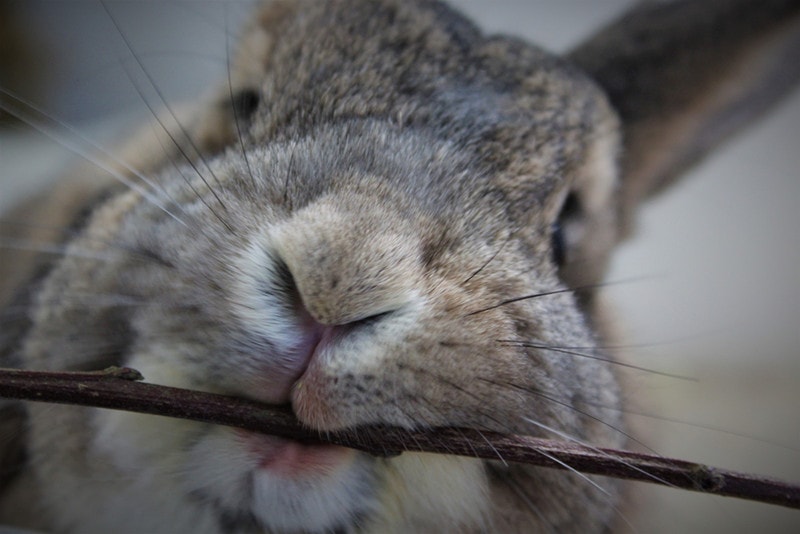
How to Avoid Getting Bit
Unless you’re an apex predator out for the kill, most animals try to avoid physical conflicts as much as possible. Any confrontation carries the risk of injury or worse. Anything that compromises your ability to escape or fight back is a weakness an animal can’t afford. That’s where communication steps up to the plate.
An animal can scent mark its territory to let others know it’s taken. Wolves and coyotes howl to send a verbal keep-out message, not unlike birds singing to defend their nesting grounds. It’s worth noting that rabbits use similar ways to define their space. They may rub their cheeks against you or objects in your home. Unneutered males or bucks may also spray.
When a conflict is imminent, a rabbit sounds an alert before things get physical. It will grunt or hiss. It may stomp its hind legs. You should heed these as warning signs if you don’t want to get bit. Don’t push the envelope. Let your pet be alone until it calms down. It’s worth noting that your pet can get injured if you drop it when it fights being held. It may also become more fearful of you.
 Final Thoughts
Final Thoughts
Most animals don’t want to bite if they can avoid it. Rabbits are no exception. However, the need to defend themselves trumps everything. Even the calmest pet will bite if it doesn’t want to be held or feels threatened. Luckily, bunnies often warn anyone or anything before lashing out with their sharp incisors ready to take on the task. Bonding with your rabbit is the best way to ensure it doesn’t happen to you.
Featured Image Credit: Charles T. Peden, Shutterstock

